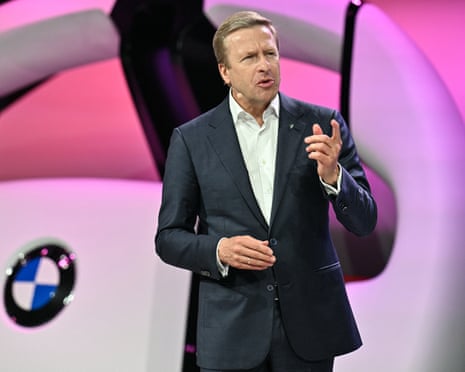BMW Faces Trade Challenges and Grows Electric Vehicle Sales in 2025

BMW has begun 2025 facing significant challenges in global trade. Rising tariffs and shifting trade policies have created uncertainty for car manufacturers around the world. Despite these obstacles, the company remains resilient, especially in its electric vehicle segment. In this article, we explore BMW's response to tariff pressures, its recent market performance, and the outlook for the rest of the year.
Tariff Pressures Reshape the Automotive Market
In early 2025, BMW faced a difficult international trade environment. Tariffs between the US, China, and Europe have raised the cost of doing business for automakers. BMW's CEO, Oliver Zipse, recently spoke about the impact of these tariffs on the company's profits. In a detailed report by The Guardian, Zipse predicted that the current 25% US tariff on foreign cars, implemented under the Trump administration, would be lowered by July. He argued that high trade barriers hurt everyone involved and called for agreements that favor zero tariffs.
These tariffs have led to a 25% drop in BMW's first-quarter profits, as noted by The Guardian. The company warned that US, EU, and Chinese tariff costs could reach €1 billion this year. Despite these setbacks, BMW has demonstrated resilience by diversifying production, including strong manufacturing operations in Spartanburg, South Carolina, and China.
BMW Maintains Outperformance Amid Headwinds
BMW is not standing still. According to Reuters, the brand has confirmed its 2025 outlook even as some tariffs are set to fall in July. BMW's forward-looking strategy and geographic distribution have lessened the blow from trade friction. The Spartanburg plant now makes BMW the largest automotive exporter from the US by value, enabling the automaker to offset some of the costs imposed by tariffs.
In China, BMW's sales have dropped by 17% in the early months of the year, primarily due to heightened competition and ongoing trade disputes. However, sales in Europe and the US have grown by 6% and 4%, respectively. This demonstrates the company's strength in adapting to market shifts. BMW’s ability to maintain strong performance in key markets reflects its global reach and production flexibility.
Surging Demand for Electric Vehicles
While facing financial and trade pressures, BMW continues to see robust growth in its electric vehicle (EV) lineup. According to the same Guardian report, demand for BMW's battery electric vehicles rose by 32% year over year despite intense competition in the Asian market. This focus on electrification forms a crucial part of BMW’s growth strategy and helps the company stay relevant in an increasingly sustainable automotive landscape.
For real-time updates and commentary on BMW's market position related to global tariffs, visit The Wall Street Journal’s coverage.
The Road Ahead for BMW
Despite facing considerable external pressures from shifting tariffs and increased competition, BMW is well-positioned to weather these challenges. Its persistent investment in electric vehicles and robust international manufacturing capabilities provide a strong foundation for continued growth.
As trade policies continue to evolve, BMW’s commitment to innovation and sustainability sets an example for the global automotive industry. Whether tariffs ease in the coming months or not, the company’s adaptability and focus on the future will remain strong differentiators.